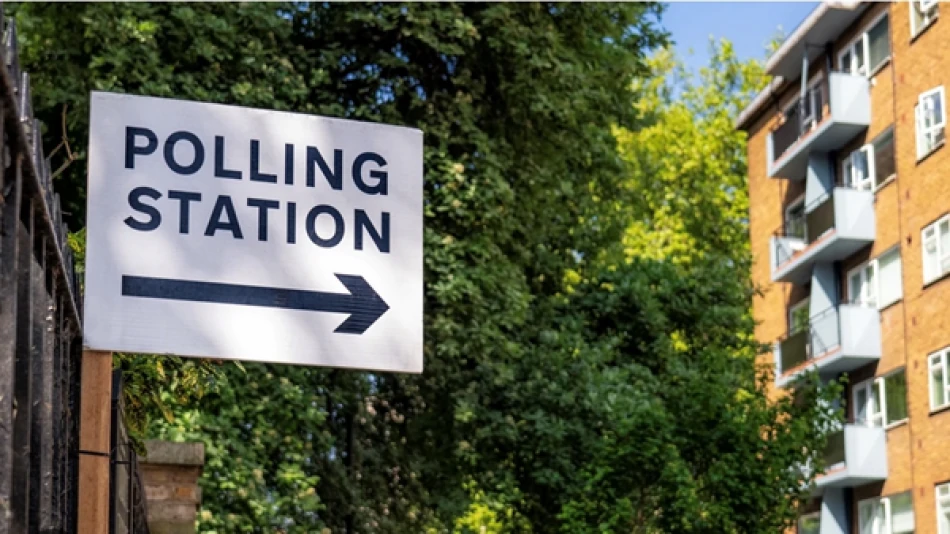
UK Lowers Voting Age to Strengthen Democratic Participation
Britain Lowers Voting Age to 16 in Bold Democratic Expansion Move
The UK government announced Thursday it will reduce the voting age from 18 to 16 ahead of the next general election, marking one of the most significant expansions of democratic participation in a generation. The move positions Britain alongside a select group of nations prioritizing youth political engagement while introducing sweeping electoral reforms designed to modernize the democratic process.
Labour Delivers on Campaign Promise
The center-left Labour Party, elected in July 2024, is fulfilling a key manifesto pledge by extending voting rights to 16 and 17-year-olds for UK parliamentary elections. This represents a natural progression from existing policies in Scotland and Wales, where teenagers already participate in local and regional elections.
The decision reflects Labour's broader strategy to energize younger demographics who historically lean progressive and could reshape the electoral landscape for years to come. By expanding the electorate to include an estimated 1.5 million additional voters, the party is betting on sustained political engagement from a generation facing climate change, housing affordability, and economic uncertainty.
International Context: A Growing Trend
Britain joins an exclusive club of nations with 16-year-old voting rights, including Austria, Brazil, and Ecuador. Austria pioneered this approach in Europe in 2007, while Brazil has allowed 16-year-olds to vote since 1988. The move contrasts sharply with countries like the United States, where voting age remains firmly at 18 despite periodic advocacy for change.
Research from Austria suggests that early voting participation creates lifelong civic habits, with 16-year-olds showing comparable political knowledge to older voters. This evidence likely influenced Labour's decision, as establishing democratic participation before major life transitions like university or employment could boost long-term turnout rates.
Comprehensive Electoral Overhaul
Campaign Finance Crackdown
The voting age reduction accompanies broader electoral reforms targeting campaign finance transparency. New rules will prevent shell companies with unclear ownership from donating to political parties, addressing longstanding concerns about foreign influence and dark money in British politics.
This reform directly responds to controversies surrounding Conservative Party funding and mirrors similar transparency initiatives in other democracies. The measure could significantly impact how parties raise funds and may force greater reliance on small-donor contributions.
Modernizing Voter Registration and ID
The government will implement automatic voter registration, streamlining a process that has historically disadvantaged younger and more mobile populations. Additionally, voters will be able to use bank cards as identification at polling stations, expanding beyond the current limited ID requirements.
These changes address practical barriers to voting while maintaining election security. Automatic registration, successfully implemented in countries like Canada and several US states, typically increases turnout by reducing bureaucratic hurdles.
Political and Strategic Implications
The reforms collectively favor Labour's electoral prospects while genuinely expanding democratic participation. Younger voters traditionally support progressive policies on climate action, social issues, and economic inequality. However, the long-term impact depends on whether these voters maintain their political engagement as they age.
Conservative opposition is likely, given the potential electoral disadvantage. The party may argue that 16-year-olds lack sufficient life experience for informed voting, though this argument faces the counterpoint that many teenagers work, pay taxes, and are affected by government policies.
The timing before the next general election ensures maximum political benefit for Labour while establishing new democratic norms that will be difficult for future governments to reverse. This strategic sequencing demonstrates sophisticated political calculation alongside genuine democratic reform.
For Britain's democratic future, these changes represent the most significant electoral modernization in decades, potentially increasing turnout, enhancing transparency, and creating more representative governance. The success of this experiment will likely influence similar debates across other established democracies grappling with declining civic participation and democratic legitimacy.
Most Viewed News

 Layla Al Mansoori
Layla Al Mansoori






